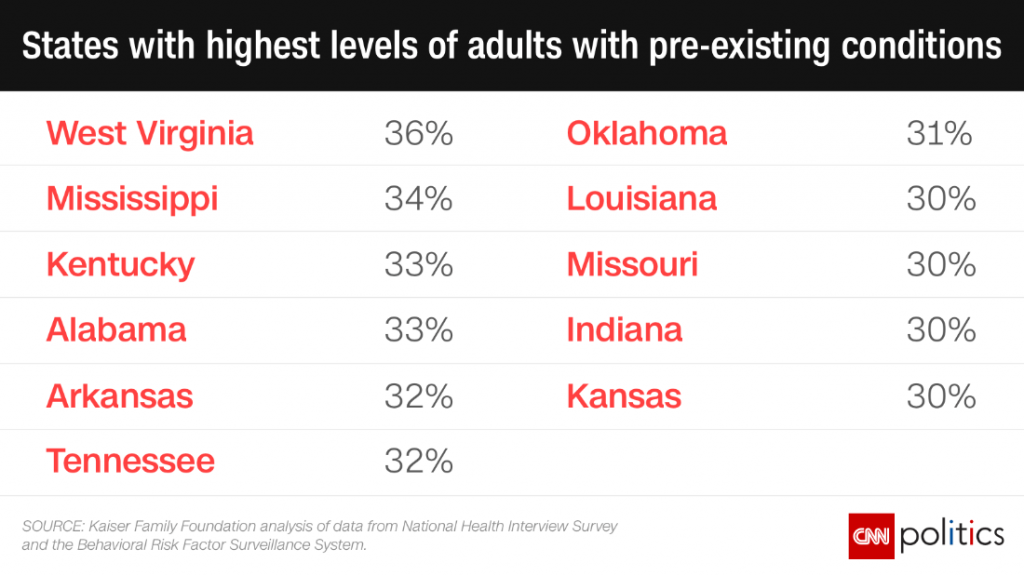![]()
President Trump and his administrative have been trying to make the ACA fail, claim most U.S. adults. Thus, the public holds the POTUS and the Republican party responsible for moving the Affordable Care Act forward….or not, according to the July 2018 Kaiser Health Tracking Poll conducted by the Kaiser Family Foundation (KFF).
Health care will be a key issue in the 2018 mid-term elections that will be held in November. Among U.S. voters’ key health care concerns in 2018, one ranks “most” or “very important” for two-thirds of Americans: that is continuing to protect people with pre-existing health conditions.
Other issues of concern include repealing the ACA, Supreme Court overturning Roe v. Wade, passing legislation to reduce the price of prescription drugs, passing laws to stabilize the ACA health insurance marketplaces, passing a national health plan (or “Medicare-for-all”), and continuing women’s access to reproductive health services.
But as the first bar chart illustrates, it’s guaranteeing pre-existing conditions that ranks top with 63% of Americans.
The vast majority of these voters also vote in battleground states (as defined by the Cook Political Report). These states include Alaska, Arizona, Connecticut, Florida, Iowa, Indiana, Maine, Michigan, Minnesota, Missouri, Nevada, North Dakota, Ohio, Tennessee, and West Virginia. These battleground states have either a toss-up gubernatorial election or Senate race, with two having both: Florida and Nevada.
![]() Underneath that 63% of people seeking the protection of pre-existing conditions are 3 in 4 Democrats (74%), 2 in 3 Independents (64%), and 1 in 2 Republicans (49%).
Underneath that 63% of people seeking the protection of pre-existing conditions are 3 in 4 Democrats (74%), 2 in 3 Independents (64%), and 1 in 2 Republicans (49%).
Besides the desire to lower the price of prescription drugs, the issue of ensuring pre-existing conditions are protected is relatively bipartisan across the three party IDs, with 49% of Republicans, virtually one-half, desiring this health policy outcome.
What’s inconsistent with this position is that while half of Republicans embrace the guarantee of pre-existing conditions to be covered by health insurance, 71% of Republicans would desire that the Supreme Court overturn the Affordable Care Act — the centerpiece of which is the protection of pre-existing conditions for all health citizens. [Without a structure in place for health insurance markets in which to base the guarantee of pre-existing condition coverage, looking for that protection as a fragmented policy prescription won’t work.]
Other findings in this July 2018 Health Tracking Poll are that:
- Most Americans do not want to see the Supreme Court overturn Roe v. Wade (including 82% of Democrats, 70% of Independents, and 43% of Republicans)
- Half of the people living in states that did not expand Medicaid would want their Governors to expand Medicaid going forward
- 50% of Americans say that lowering the price of prescription drugs is most or very important for their vote in the mid-term elections.
KFF polled 1,200 U.S. adults 18 and older in July 2018 for this study, carried out in English and Spanish by telephone (via both cell/mobile and landlines).

Health Populi’s Hot Points: Nearly one in two Americans across all ages has at least one pre-existing condition. The list of said conditions ranges from “A” for acne, acromegaly, AIDS or ARC, Alzheimer’s Disease, Amyotrophic Lateral Sclerosis, Anemia, Anxiety, Arthritis, Asthma, and Asbestosis, among other “A’s”; to “T,” such as Thyroid disease and Tuberculosis. There are dozens more conditions between A and T, but I wanted to give you a general idea that either “you,” or someone you care about, probably has at least one pre-existing condition.
And remember, too, that “P” for “pregnancy” is also a pre-existing condition, covered by the Affordable Care Act provisions.
Give this election year, it’s instructive to look at the third chart, organizing information from the Foundation’s analysis of the U.S. National Health Interview Survey taken across a national sample of U.S. patients. This is a list of the states with the highest levels of pre-existing conditions.
How interesting it is that this list includes so many of the 2018 mid-term election battleground states, such as West Virginia, Tennessee, Missouri, and Indiana. These and other states are also those that did not expand Medicaid. And these states, too, tend to have lower levels of health outcomes and well-being based on metrics I recently covered in this write-up on preventable heart disease in America.
Americans’ individual health and access to health care services is a tri-partisan issue in 2018, and expanding Medicaid is on the minds’ of at least one-half of residents living and trying to get care in States that did not expand Medicaid plans. Health care is local and the 2018 mid-term elections are all about local priorities this year. But health care? That’s local because it’s personal, and that’s national because every U.S. health citizen pays a huge price when every American isn’t covered – especially, for pre-existing conditions.




 Thank you FeedSpot for
Thank you FeedSpot for